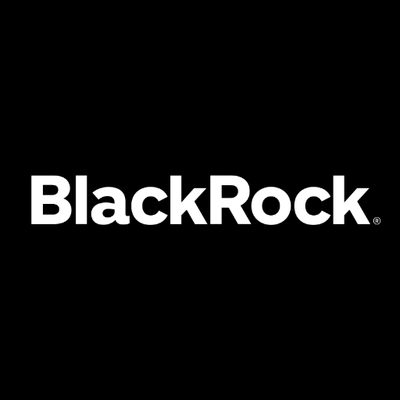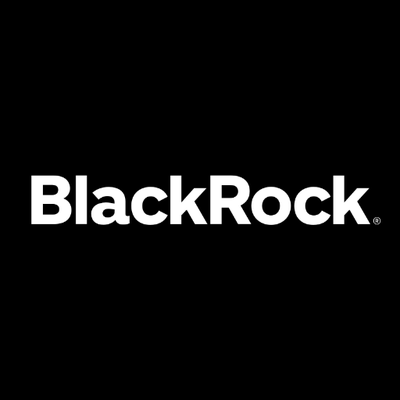BlackRock Income and Growth Investment Trust plc (LON:BRIG) has announced its latest portfolio update.
All information is at 31 August 2023 and unaudited.
For more information on the BlackRock Income and Growth Investment Trust, please visit: www.blackrock.com/uk/brig
Performance at month end with net income reinvested
| OneMonth | ThreeMonths | OneYear | ThreeYears | FiveYears | Since1 April2012 | |
| Sterling | ||||||
| Share price | -0.8% | -1.8% | -2.0% | 24.8% | 8.3% | 109.2% |
| Net asset value | -2.6% | -0.3% | 6.0% | 31.6% | 15.4% | 109.6% |
| FTSE All-Share Total Return | -2.5% | 1.1% | 5.2% | 34.9% | 18.4% | 104.6% |
| Source: BlackRock |
BlackRock took over the investment management of the Company with effect from 1 April 2012.
At month end
Sterling:
| Net asset value – capital only: | 199.97p |
| Net asset value – cum income*: | 203.16p |
| Share price: | 183.00p |
| Total assets (including income): | £46.2m |
| Discount to cum-income NAV: | 9.9% |
| Gearing: | 6.3% |
| Net yield**: | 4.0% |
| Ordinary shares in issue***: | 20,780,154 |
| Gearing range (as a % of net assets): | 0-20% |
| Ongoing charges****: | 1.18% |
| * Includes net revenue of 3.19 pence per share. | |
| ** The Company’s yield based on dividends announced in the last 12 months as at the date of the release of this announcement is 4.0% and includes the 2022 final dividend of 4.70p per share declared on 1 February 2023 with pay date 15 March 2023, and the 2023 Interim Dividend of 2.60p per share declared on 21 June 2023 with pay date 1 September 2023. | |
| *** excludes 10,081,532 shares held in treasury. | |
| **** The Company’s ongoing charges are calculated as a percentage of average daily net assets and using management fee and all other operating expenses excluding finance costs, direct transaction costs, custody transaction charges, VAT recovered, taxation and certain non-recurring items for the year ended 31 October 2022. | |
| Sector Analysis | Total assets (%) |
| Support Services | 10.4 |
| Oil & Gas Producers | 9.8 |
| Pharmaceuticals & Biotechnology | 9.0 |
| Mining | 7.9 |
| Financial Services | 7.7 |
| Household Goods & Home Construction | 7.4 |
| Media | 7.4 |
| Banks | 7.3 |
| General Retailers | 4.5 |
| Personal Goods | 4.2 |
| Nonlife Insurance | 3.0 |
| Life Insurance | 2.8 |
| Health Care Equipment & Services | 2.7 |
| Electronic & Electrical Equipment | 2.6 |
| Food Producers | 2.6 |
| Gas, Water & Multiutilities | 2.0 |
| Tobacco | 1.9 |
| Travel & Leisure | 1.7 |
| Leisure Goods | 1.2 |
| Real Estate Investment Trusts | 1.0 |
| Net Current Assets | 2.9 |
| —– | |
| Total | 100.0 |
| ===== | |
| Country Analysis | Percentage |
| United Kingdom | 91.3 |
| United States | 2.5 |
| Switzerland | 2.0 |
| France | 1.3 |
| Net Current Assets | 2.9 |
| —– | |
| 100.0 | |
| ===== | |
| Top 10 holdings | Fund % |
| Shell | 7.6 |
| AstraZeneca | 7.0 |
| Rio Tinto | 5.2 |
| 3i Group | 4.7 |
| RELX | 4.7 |
| Reckitt | 4.6 |
| Unilever | 3.4 |
| Phoenix Group | 2.8 |
| Pearson | 2.7 |
| BHP | 2.7 |
Commenting on the markets, representing the Investment Manager noted:
Performance Overview:
The Company returned -2,6% during the month, performing broadly in-line with the FTSE All-Share which returned -2.5%.
Market Summary:
Equity markets globally were negative in August on the back of weak macroeconomic data out of China leading to increased concerns around the growth outlook. With credit demand remaining weak in China and consumer spending continuing to remain below pre-Covid levels, the country cut interest rates.
In the UK, the Bank of England hiked interest rates by 25bps due to mixed inflation data, bringing the Bank Rate to 5.25%1, and further emphasising the intention to hold rates at a restrictive level for some time. UK GDP growth showed the economy grew 0.2% during the second quarter which was slightly stronger than the Bank of England forecast of 0.1%2, and an acceleration compared to the prior two quarters.
Contributors to Performance:
Admiral was the top positive contributor to performance during the month after the company posted good results as the motor insurance cycle continues to stabilise. Centrica continued to rally on the back of the company’s plan of capital returns and dividend announced in July. Mastercard was another top contributor during the month; the company reported earnings in July with an adjusted EPS beat and slight beat on revenue following through to better margin.
Watches of Switzerland was the top detractor from performance during the period after the announcement of Rolex (the world’s largest watch company) acquiring Bucherer (one of the world’s largest watch retailers). We believe this presents some uncertainty for the future of Watches of Switzerland; therefore, we have adjusted the position sizing to reflect this. Smith & Nephew was another top detractor along with BHP; the company’s share price fell on China weakness.
Changes:
During the period, reduced the positions in Watches of Switzerland and Roche.
Outlook:
Inflation has consistently surprised in its depth and breadth, driven by resilient demand, supply chain constraints, and most importantly by rising wages in more recent data. Central banks across the developed world continue to unwind ten years of excess liquidity by tightening monetary policy desperate to prevent the entrenchment of higher inflation expectations. Meanwhile, March saw the first signs of financial stress with the bankruptcy of Silicon Valley Bank and Signature bank in the US serving to highlight the potential issues of the aggressive retrenchment of liquidity. Whilst the ramifications of this crisis remain unclear, it is likely that credit conditions and the availability of credit will continue to recede. This strengthens our belief that companies with robust balance sheets capable of funding their own growth will outperform. We are mindful of this and feel it is incredibly important to focus on companies with strong, competitive positions, at attractive valuations that can deliver in this environment.
We would expect broader demand weakness into the second half of 2023 although the `scars’ of supply chain disruption are likely to support parts of industrial capex demand as companies seek to enhance the resilience of their supply chains. A notable feature of our conversations with a wide range of corporates has been the ease with which they have been able to pass on cost increases and protect or even expand margins during 2022. We believe that as demand weakens and as the transitory inflationary pressures start to fade during 2023 (e.g. commodity prices, supply chain disruption) then pricing conversations will become more challenging despite pressure from wage inflation which may prove more persistent. While this does not bode well for margins in aggregate, we believe that 2023 will see greater differentiation as corporates’ pricing power will come under intense scrutiny.
The UK’s policy has somewhat diverged from the G7 in fiscal policy terms as the present government attempts to create stability after the severe reaction from the “mini-budget”. The challenging divergence in inflation between the UK and other developed markets has seen sterling recover some strength, notably against the dollar as markets infer higher rates for longer. Although the UK stock market retains a majority of internationally weighted revenues, the domestic facing companies have continued to be impacted by this backdrop, notably financials, housebuilders and property companies. The valuation of the UK market continues to be extremely low in absolute terms but particularly versus other developed market indices with many companies, notably the domestic earners trading at COVID or Brexit lows in share price or valuation terms. Although we anticipate further volatility ahead as earnings estimates moderate, we know that in the course of time, risk appetites will return and opportunities are emerging.
In China, the re-opening of the economy post the lockdowns has been slower than expected. There are early signs that the Chinese government is looking to stimulate the economy further which may become more apparent as we enter 2024. We continue to focus the portfolio on cash generative businesses with durable, competitive advantages boasting strong leadership as we believe these companies are best-placed to drive returns over the long-term. We anticipate economic and market volatility will persist throughout the year and we are excited by the opportunities this will likely create by identifying those companies using this cycle to strengthen their long-term prospects as well as attractive turnarounds situations.
1 Source: Financial Times, 3 August 2023. https://www.ft.com/content/97a2d940-4fd6-40ba-aa2f-b0e768394eb3#post-7d2b029d-7332-462f-a6fa-ec91e2a25126
2 Source: Financial Times, 3 August 2023. https://www.ft.com/content/ce0b1c77-6d28-4ec6-b6a8-f09fc3b20ece#post-17622314-2871-447f-85d0-238b14fc2cd4
For more information on the BlackRock Income and Growth Investment Trust, please visit: www.blackrock.com/uk/brig






































